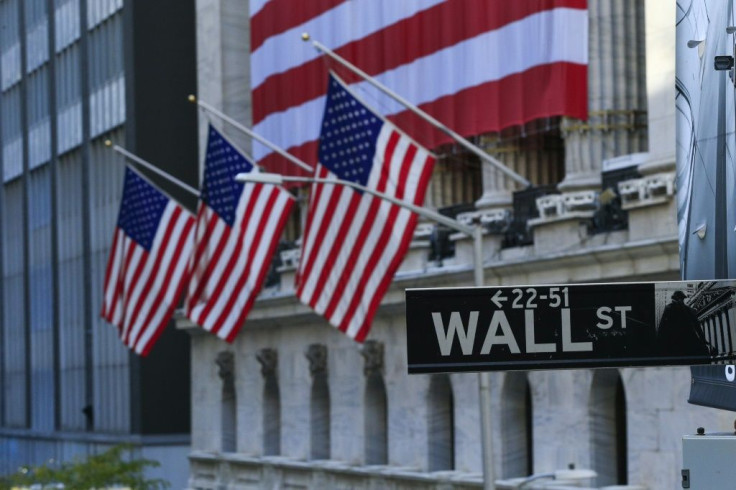However The US Election Goes, Wall Street Marches On
From the US presidential election to the state of the economy, on paper this week did not go well for Wall Street, and yet stock indices climbed ever higher.
Wall Street's preferred candidate President Donald Trump has lost key states and may indeed lose the White House. The US economy is still suffering from the coronavirus pandemic, and Congress could remain split between Democrats and Republicans for the next two years, meaning much-needed stimulus spending may come haltingly or be undersized.
The ingredients are all there for US stocks to plunge -- and yet the Dow Jones Industrial Average is up seven percent for the week and the tech-laden Nasdaq Composite Index rose nearly nine percent.
What can be behind this paradox?
At the final presidential debate in October, Trump warned the 43 percent of Americans who invest their retirement savings in stocks that if his challenger Joe Biden wins, "Your 401k will go to hell."
The markets have been Trump's preferred measure of success since taking office in 2017, and under his administration the Dow has climbed by a third and the Nasdaq almost doubled.
The growth has been helped by deregulation and corporate tax cuts passed by Trump, and a Fortune magazine poll in October found that 54 percent of investors thought the president was better for the stock market versus 42 percent for Biden.
Democrats aren't traditionally favored by traders, who view them as the party of tax increases and social policies that could cut in to profits.
But for now, Wall Street doesn't seem to mind: the fear before the vote was of weeks-long uncertainty before a winner is declared, but the final contested states are expected to announce results in coming days.

In fact, markets may welcome Biden's arrival in the White House, particularly if Democrats are denied control of the Senate, leaving Republicans in a position to temper his agenda.
A much-anticipated "blue wave" that would have given the Democrats control of Congress and the White House hasn't appeared, meaning Biden's program of tax hikes on the rich and corporations may be harder to get approved.
"With a split Congress, the market knows that, if President Trump wins, there won't be an adverse change in tax policy. The market believes that, if former vice president Biden wins, there won't be an adverse change in tax policy," said Patrick O'Hare of Briefing.com.
However Sam Stovall, chief strategist at CFRA, said the S&P 500 index has seen better returns under unified governments, where one party controls both the White House and Congress.
This also matters for the issue of passing another stimulus measure to help the US economy recover from the pandemic, after key provisions of a $2.2 trillion measure enacted in March lapsed.
Wall Street wants Congress to pass another massive package -- but not one so big that it would require higher taxes to pay for it.
Outside the stock market, things are not looking great.
The United States this week saw two days of record Covid-19 infections, topping 120,000 new cases on Thursday, and few believe its economy will recover with the virus uncontained. Europe is also seeing a surge in cases, hampering its economies.
Yet investors are still betting on Wall Street, which has been aided by the Federal Reserve's decision to slash interest rates to zero at the pandemic's start and offer markets trillions of dollars in liquidity.
With scant returns on bonds, investors are now betting on riskier assets like stocks, and their boom has been helped by Congress's approval in 2017 of a measure lowering the corporate tax rate from 35 percent to 21 percent, which Trump supported.
"The market is basically saying that whoever gets in, it will be comfortable, and that the winner -- whoever it is -- is likely to spend money," particularly on a stimulus or infrastructure bill, said JJ Kinahan of TD Ameritrade.
© Copyright AFP 2024. All rights reserved.




















